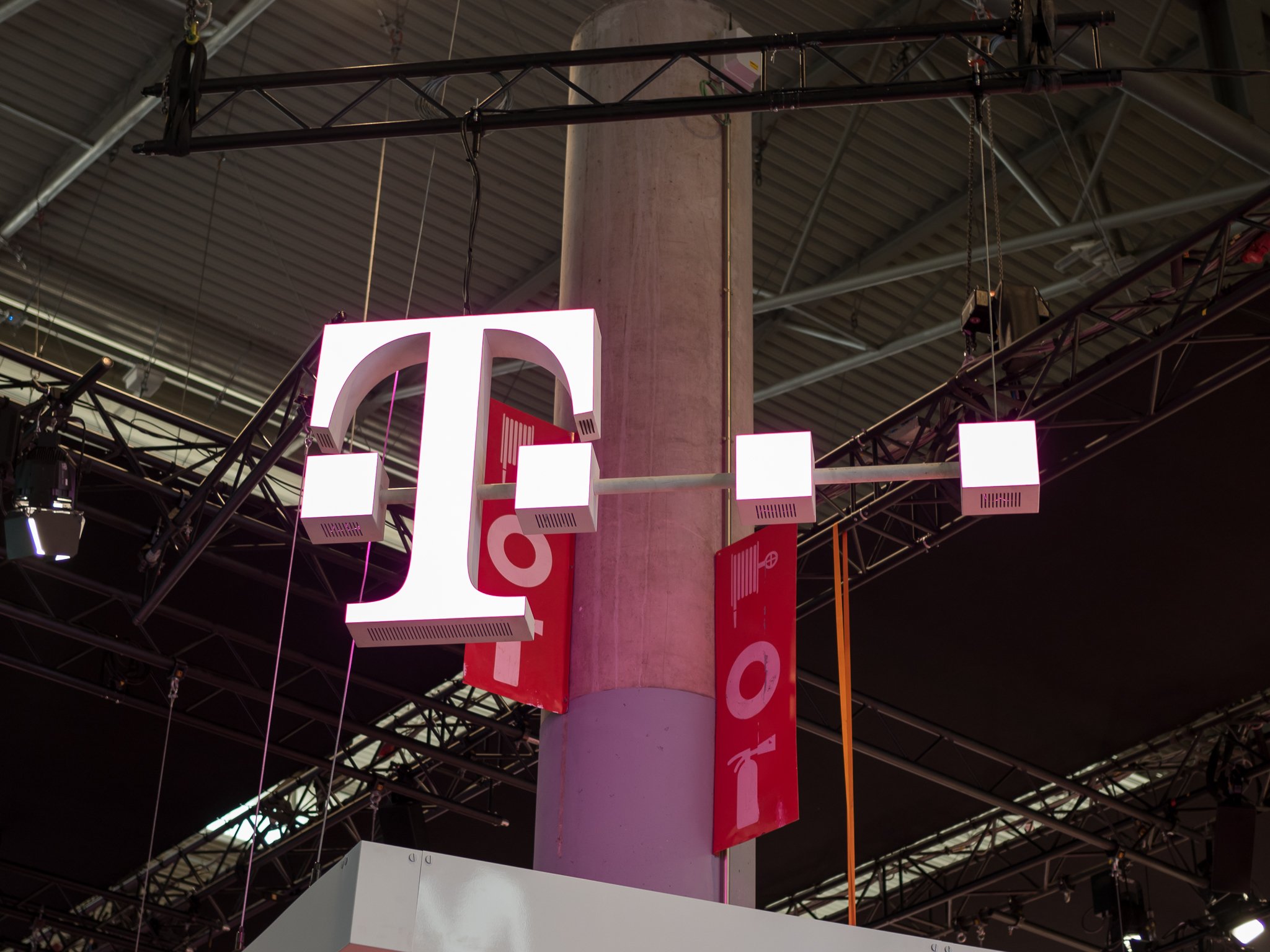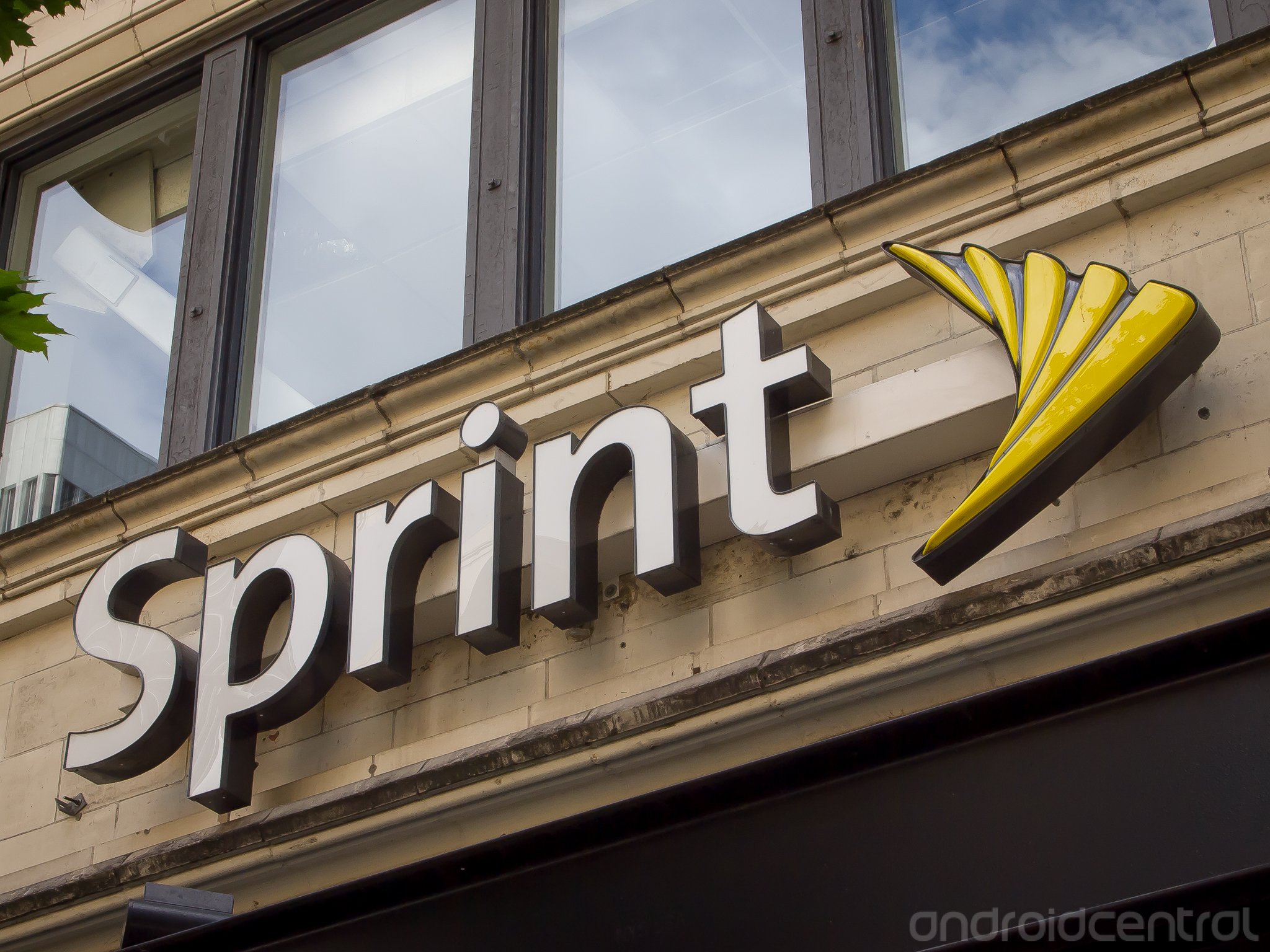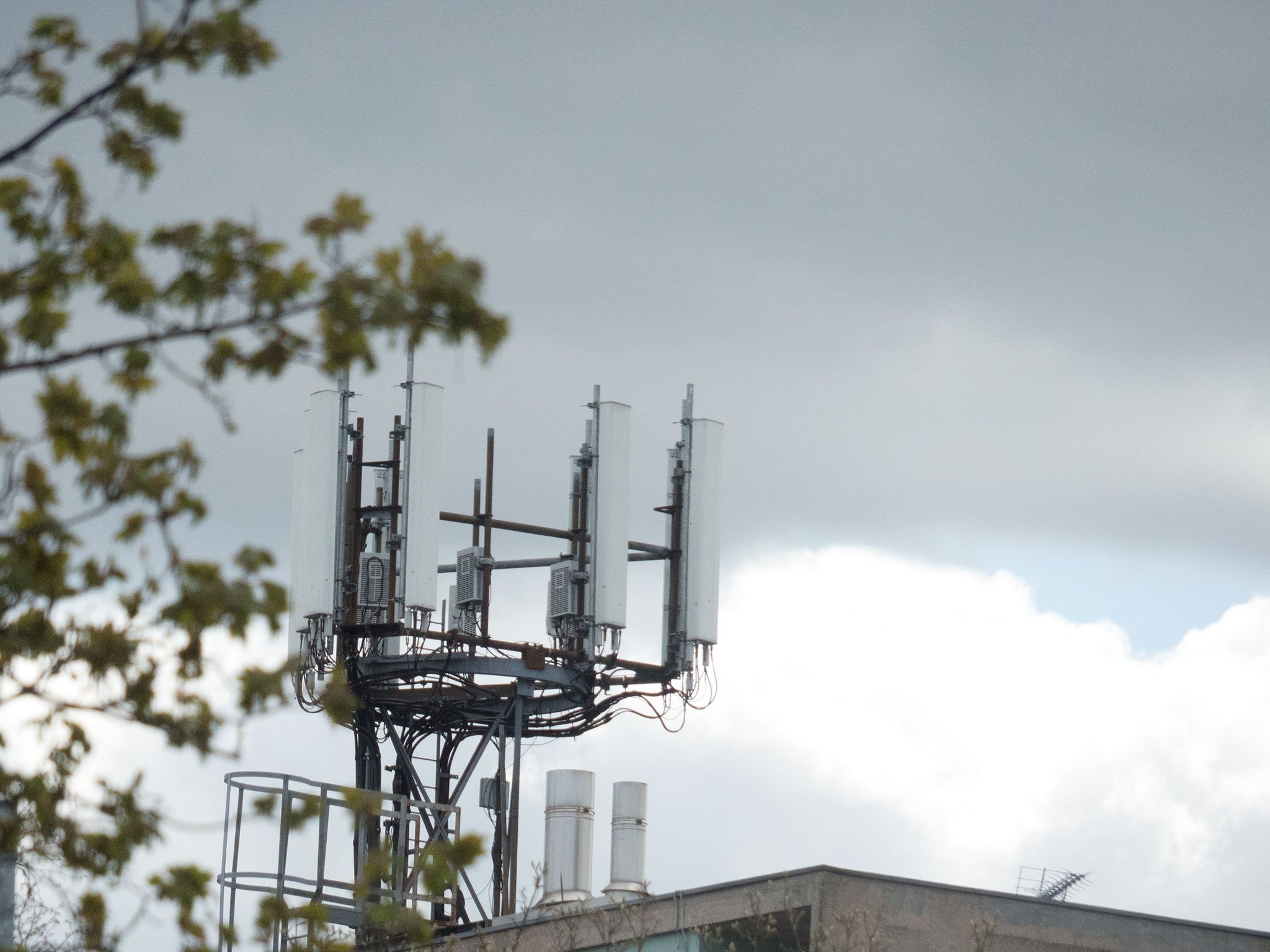 Why do these two companies want to hook-up so badly, and what would it mean for us?
Update: April 27, 2018 CNBC recently reports that financial synergies the recent corporate tax cuts provide and the actual costs of a 5G rollout have caused SoftBank CEO Masayoshi Son to have a change of heart about retaining any control of a combined company. Combined with a Comcast and Charter deal that includes phone services, the landscape has changed enough that we should expect an announcement of a $26 billion deal very soon.
Sprint and T-Mobile are back at it again. The two companies are said to be working on a way to find the common ground that lets them merge after two failed sets of talks. The most recent failure came after Softbank, Sprint's parent company, had concerns about relinquishing control. While many say that the downsides of any merging of the two companies are less consumer choice — we need only to look to Canada to see the effect on prices of three large telecom companies controlling the wireless market — not much has been said about the benefits, not only to Sprint and T-Mobile but to the consumer. No matter where you stand on the benefits and drawbacks of the two companies getting together, it's interesting to look at any changes that could happen.
Why this is good for both companies
On the corporate level, both Sprint and T-Mobile see huge benefit from any merger but for very different reasons. The obvious is all the ways this helps the two compete with AT&T and Verizon, who each have more subscribers than the other two combined. With the new entity, there will be more competition for things such as spectrum auctions because a united Sprint and T-Mobile not only has more revenue but also poses a greater risk to AT&T and Verizon. Without a third "giant" carrier to drive them, AT&T and Verizon may not take the same risks they will when there is a large competitor in their rearview mirror.
Softbank needs to unload Sprint but needs to have a say in how it's used.
Softbank may benefit more from any merger or buyout than anyone else. The company purchased Sprint as a way to break into the U.S. market but its influence hasn't created the splash many thought it would. What did happen was $30 billion of long-term debt the company has incurred by absorbing Sprint. While it's likely that any deal between Sprint and T-Mobile wouldn't erase Softbank's obligation in full, the company would likely walk away with it reduced or with a cash injection to pay a portion of it off.
Why do these two companies want to hook-up so badly, and what would it mean for us?
Update: April 27, 2018 CNBC recently reports that financial synergies the recent corporate tax cuts provide and the actual costs of a 5G rollout have caused SoftBank CEO Masayoshi Son to have a change of heart about retaining any control of a combined company. Combined with a Comcast and Charter deal that includes phone services, the landscape has changed enough that we should expect an announcement of a $26 billion deal very soon.
Sprint and T-Mobile are back at it again. The two companies are said to be working on a way to find the common ground that lets them merge after two failed sets of talks. The most recent failure came after Softbank, Sprint's parent company, had concerns about relinquishing control. While many say that the downsides of any merging of the two companies are less consumer choice — we need only to look to Canada to see the effect on prices of three large telecom companies controlling the wireless market — not much has been said about the benefits, not only to Sprint and T-Mobile but to the consumer. No matter where you stand on the benefits and drawbacks of the two companies getting together, it's interesting to look at any changes that could happen.
Why this is good for both companies
On the corporate level, both Sprint and T-Mobile see huge benefit from any merger but for very different reasons. The obvious is all the ways this helps the two compete with AT&T and Verizon, who each have more subscribers than the other two combined. With the new entity, there will be more competition for things such as spectrum auctions because a united Sprint and T-Mobile not only has more revenue but also poses a greater risk to AT&T and Verizon. Without a third "giant" carrier to drive them, AT&T and Verizon may not take the same risks they will when there is a large competitor in their rearview mirror.
Softbank needs to unload Sprint but needs to have a say in how it's used.
Softbank may benefit more from any merger or buyout than anyone else. The company purchased Sprint as a way to break into the U.S. market but its influence hasn't created the splash many thought it would. What did happen was $30 billion of long-term debt the company has incurred by absorbing Sprint. While it's likely that any deal between Sprint and T-Mobile wouldn't erase Softbank's obligation in full, the company would likely walk away with it reduced or with a cash injection to pay a portion of it off.
 Look for Softbank to still require at least some control over any merged Sprint-T-Mobile entity, as the company has also invested heavily into Internet of Things applications. Having influence in a carrier's decisions is a nice benefit when in that position. Softbank needs Sprint-T-Mobile to be a strong player but also needs to be able to steer policy and decisions to stay favorable to them.
T-Mobile needs more spectrum and Sprint has exactly the kind it needs.
T-Mobile benefits because Sprint has the one thing it wants and hasn't been able to get (at least not get as much as it feels it needs) — mobile spectrum. Sprint happens to have a massive 150 MHz of it and it's exactly the kind T-Mobile requires. T-Mobile is positioned well when it comes to cell site density and mid-band spectrum but needs more high-band spectrum to give it the capacity to expand. Sprint has only utilized about a third of its 2.5 GHz spectrum so there is plenty left that could be used exactly the way T-Mobile wants to use it should the two companies join.
Why it would be good for consumers
Look for Softbank to still require at least some control over any merged Sprint-T-Mobile entity, as the company has also invested heavily into Internet of Things applications. Having influence in a carrier's decisions is a nice benefit when in that position. Softbank needs Sprint-T-Mobile to be a strong player but also needs to be able to steer policy and decisions to stay favorable to them.
T-Mobile needs more spectrum and Sprint has exactly the kind it needs.
T-Mobile benefits because Sprint has the one thing it wants and hasn't been able to get (at least not get as much as it feels it needs) — mobile spectrum. Sprint happens to have a massive 150 MHz of it and it's exactly the kind T-Mobile requires. T-Mobile is positioned well when it comes to cell site density and mid-band spectrum but needs more high-band spectrum to give it the capacity to expand. Sprint has only utilized about a third of its 2.5 GHz spectrum so there is plenty left that could be used exactly the way T-Mobile wants to use it should the two companies join.
Why it would be good for consumers
 The reasons that make any potential get together good for both companies are also the reasons it makes it good for customers. The results would mean better coverage and a faster network.
Assuming the two companies wouldn't stay separate (and they shouldn't, for all the reasons above) getting them together could mean the fast T-Mobile LTE network is available for more people in more places, with less dead spaces in between.
Any Sprint-T-Mobile merger means more 5G in more places.
T-Mobile knows that expansion is what comes next. We're seeing it expand to "rural" areas using the recently-acquired 600 MHz spectrum which now covers more than 300,000 square miles of previously dead air. But the spectrum available isn't enough, and Sprint's massive chunk of 2.5 GHz spectrum would slide right in to keep the expansion going at the same aggressive rate once the 600 MHz block runs out.
This is also "5G-ready" spectrum, as it can provide the bandwidth a large number of high-speed connections would require. T-Mobile already has 200 MHz of millimeter-wave spectrum spread out across 100 million potential customers and has been deploying 5G-ready infrastructure in its 600 MHz expansion. T-Mobile was late to the 4G revolution, but has eyes on what's next.
Current customers would see better service with fewer dead spots.
Sprint has everything it needs to be a network powerhouse. We've all heard the promises, and the few places where Sprint has built the network out are filled with happy customers. But issues with funding, changes in the company's leadership and poor decisions in the past have plagued Sprint and the network is in a downward spiral it may never be able to pull out of. To expand, Sprint needs money. To get money, it needs rapid customer growth. To get more customers it has to be able to have a better network. Joining with T-Mobile breaks this circle and both sides know it. That makes Sprint's assets very valuable.
Finally, a look at the coverage map is interesting and enlightening. Not the coverage maps the two companies publish on their websites, but a more realistic map like this one from Ookla that shows the combined network footprint as read by the company's SpeedTest service.
The reasons that make any potential get together good for both companies are also the reasons it makes it good for customers. The results would mean better coverage and a faster network.
Assuming the two companies wouldn't stay separate (and they shouldn't, for all the reasons above) getting them together could mean the fast T-Mobile LTE network is available for more people in more places, with less dead spaces in between.
Any Sprint-T-Mobile merger means more 5G in more places.
T-Mobile knows that expansion is what comes next. We're seeing it expand to "rural" areas using the recently-acquired 600 MHz spectrum which now covers more than 300,000 square miles of previously dead air. But the spectrum available isn't enough, and Sprint's massive chunk of 2.5 GHz spectrum would slide right in to keep the expansion going at the same aggressive rate once the 600 MHz block runs out.
This is also "5G-ready" spectrum, as it can provide the bandwidth a large number of high-speed connections would require. T-Mobile already has 200 MHz of millimeter-wave spectrum spread out across 100 million potential customers and has been deploying 5G-ready infrastructure in its 600 MHz expansion. T-Mobile was late to the 4G revolution, but has eyes on what's next.
Current customers would see better service with fewer dead spots.
Sprint has everything it needs to be a network powerhouse. We've all heard the promises, and the few places where Sprint has built the network out are filled with happy customers. But issues with funding, changes in the company's leadership and poor decisions in the past have plagued Sprint and the network is in a downward spiral it may never be able to pull out of. To expand, Sprint needs money. To get money, it needs rapid customer growth. To get more customers it has to be able to have a better network. Joining with T-Mobile breaks this circle and both sides know it. That makes Sprint's assets very valuable.
Finally, a look at the coverage map is interesting and enlightening. Not the coverage maps the two companies publish on their websites, but a more realistic map like this one from Ookla that shows the combined network footprint as read by the company's SpeedTest service.
 Wisconsin, Florida and the Mid-Atlantic would have a great network should this merger happen.
Every pink dot is a place where you can connect to a fast T-Mobile network. The yellow spaces in between are where you can find a Sprint signal, but it's hampered by Sprint's mid-band spectrum (which is also shared with the company's 3G network) and that signal is attached to a low-speed, low-bandwidth network that customers aren't all that happy with. A better utilization of Sprint's assets on top of T-Mobile's could mean a very strong network across this entire footprint and would mean the speeds you see in Seattle (T-Mobile) would come to the network you can find in Yakima (Sprint) for example.
That's really what all the talk about spectrum and Megahertz means. T-Mobile doesn't have what it needs to bring service to more places and Sprint doesn't have what it needs to make its network faster. The two together means better service for a lot of people. Sprint's assets would let a merged company build in more places and T-Mobile's assets mean what it could build would be good.
This isn't over
Wisconsin, Florida and the Mid-Atlantic would have a great network should this merger happen.
Every pink dot is a place where you can connect to a fast T-Mobile network. The yellow spaces in between are where you can find a Sprint signal, but it's hampered by Sprint's mid-band spectrum (which is also shared with the company's 3G network) and that signal is attached to a low-speed, low-bandwidth network that customers aren't all that happy with. A better utilization of Sprint's assets on top of T-Mobile's could mean a very strong network across this entire footprint and would mean the speeds you see in Seattle (T-Mobile) would come to the network you can find in Yakima (Sprint) for example.
That's really what all the talk about spectrum and Megahertz means. T-Mobile doesn't have what it needs to bring service to more places and Sprint doesn't have what it needs to make its network faster. The two together means better service for a lot of people. Sprint's assets would let a merged company build in more places and T-Mobile's assets mean what it could build would be good.
This isn't over
Any merger or buyout is nowhere near final, as we've seen before. there are plenty of drawbacks to losing an independent network operator and replacing it with another multi-headed AT&T-like beast. As potential customers, we're most concerned with pricing and how this takes away any incentive for Sprint and T-Mobile to offer a better deal than AT&T or Verizon. But things like policy decisions, where Sprint and T-Mobile have lobbied for things that benefit the "little guy" and creative ways to change how we buy service are important and could disappear if any merger happens, too.
All the good a merger may bring could be outweighed by what's not so good.
AT&T and Verizon aren't very pleased with the idea of Sprint and T-Mobile becoming one large competitor either. It would threaten the two company's market position — currently, the two go back and forth at the top spot for revenue and subscriber count — which could, in turn, affect what sort of treatment either receive from regulators and partners. Expect both to fight against any merger or buyout should it get close to happening.
For now, we can simply wait and see and try to analyze how this could change the current mobile landscape and shape the future.
source: https://www.androidcentral.com/sprint-tmobile-merge
date: Fri, 27 Apr 2018 22:23:00 +0000
Comments
Post a Comment